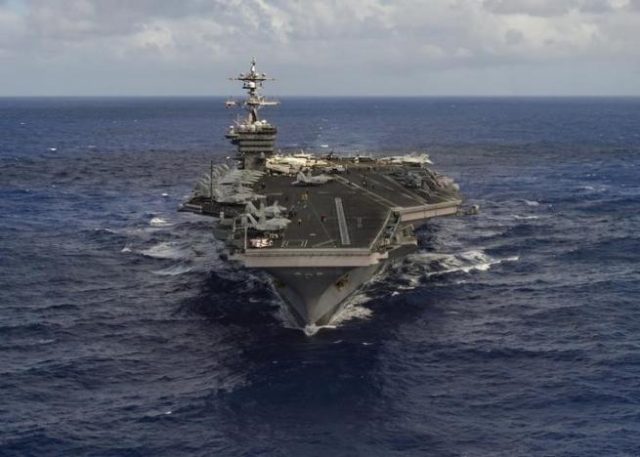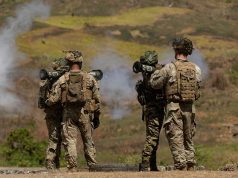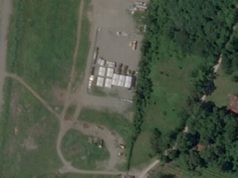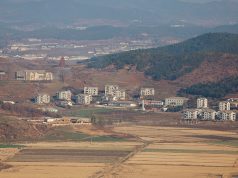
The United States has sent the USS Carl Vinson aircraft carrier strike group to the Korean Peninsula. The message is clear: a show of military and naval force in the Pacific as a warning to North Korea that the United States is prepared to strike, if need be, should North Korea’s provocative nuclear tests escalate into armed conflict.
Where does the Philippines stand in this tension?
The 1951 Mutual Defense Treaty (MDT) between the Philippines and the United States is the key. The MDT’s purpose is to “declare publicly and formally their sense of unity and common determination to defend themselves against external armed attacks, so that no potential armed aggressor could be under the illusion that either of them stands alone in the Pacific area.”
Article 4 of the MDT provides that “each party recognizes that an armed attack in the Pacific Area on either of the Parties would be dangerous to its own peace and safety and declares that it would act to meet the common dangers in accordance with its constitutional processes.” Under the MDT, it is the Philippine’s international obligation not to be neutral. It must side with the United States.
The United States therefore can call on the Philippines for mutual defense. The treaty’s implementation, however, will depend on the result of the consultation of the parties from time to time as provided in its Article 3. Consultation, in turn, implies that there may be varying degrees of support extendible by each party to the other should the need arise.
Also, according to Article 3, consultations with the Philippines will happen “whenever in the opinion of either of them the territorial integrity, political independence or security of either of the Parties is threatened by external armed attack in the Pacific.” Security concerns are the closest possible reason for the US to make a determination.
As of the moment, there seems to be no such consultation with the Philippines. President Trump has not called President Duterte specifically for this possible international crisis. However, Japan’s Prime Minister Shinzo Abe has already talked to President Trump — an intimation Japan may already be consulted based on their US-Japan MDT.
Should the North Koreans bomb the USS Carl Vinson, a public vessel, in the Pacific, that will qualify as a threat to the United States’ security. Article 5 of the treaty provides that an external armed attack includes an armed attack “on its armed forces, public vessels or aircraft in the Pacific.”
In such an event, the Philippines, pursuant to Article 4 of the treaty, must consider the attack as also “a threat to its own peace and safety.” But the Philippines’ actions to “meet the common dangers” must nevertheless be “in accordance with its constitutional processes.” Under Article 2 Section 8 of the 1987 Constitution, “the Philippines, consistent with the national interest, adopts and pursues a policy of freedom from nuclear weapons in its territory.” Accordingly, no US vessels with nuclear weapons can dock in the Philippines.
Also, if the US and North Korea go to war, the MDT does not require that the Philippines also go to war. The determination of war-status must follow the Philippines’ “constitutional process,” which mandates that only the Philippine Congress can declare a state of war. This will not, however, define how North Korea considers the Philippines.
Should the Philippines not declare war, “mutual defense,” as envisioned in the MDT, can take any effective form of assistance to the United States less than actually engaging in a shooting war. An example would be allowing Philippine ports to be the landing-venue of injured US personnel. Also, according to the Enhanced Defense Cooperation Agreement (EDCA) between the US and the Philippines, the latter can allow the former “to preposition and store defense equipment, supplies and materiel” at agreed locations.
And given the limited capacity of the Philippines in sustaining military actions in any international confrontation, a strong public pronouncement of alliance with, and support for, the United States and castigation of North Korea made known internationally may be enough. This is within the spirit of the MDT “that no potential armed aggressor could be under the illusion that either of them stands alone in the Pacific area.”
What if the United States makes a pre-emptive strike against North Korea? The Philippines should not get involved because it is not an external armed attack against the United States. Chronologically at least, it is the United States which started the military engagement.
However, there is an emerging view in international law that a pre-emptive strike can be an act of “anticipatory self-defense.” This means that a country, before being hit by an imminent attack from an enemy, can make a first-strike against the intending aggressor as an act of self-preservation. It is posited that such an anticipatory strike is within the broader application of a state’s right of self-defense authorized by Article 51 of the United Nations Charter in case of an armed attack by an enemy state. It is argued that “armed attack” includes the imminence thereof. If this is the case, the US can call on the Philippines under the MDT for “mutual defense” but again subject to the results of consultations, the processes under 1987 Philippine Constitution and the mandates of the United Nations Charter.
Is there a way for the Philippines to get out of the MDT if an armed conflict between the United States and North Korea erupts? The Philippines can argue that the doctrine of rebus sic stantibus recognized under international law must be applied. This doctrine advances the view that if there are exceptional and fundamental changes in circumstances not originally contemplated by the state-parties since the initial effectivity of the treaty, any party can opt out from the application of the treaty in certain cases.
When the MDT took effect in 1951, there was still no North Korea. Much more, Korea was then a troubled country without any nuclear capability. Now, North Korea exists, ruled by a rouge government and with nuclear capability. The security dynamics within the Pacific region have drastically been altered. These changes are exceptionally fundamental, warranting the non-application of the MDT to the Philippines should a shooting war between the United States and North Korea ensue.
What direction the Duterte Administration will take is still unclear.
The problem, surely, does not compare to the parochial wars in Davao that President Duterte was used to resolving as mayor. International conflict resolution is a thousand times more complicated and its consequences far reaching. Will President Duterte make the Philippines non-committal? If so, will this not be deemed a breach of the MDT? Will President Duterte invoke rebus sic stantibus? Or will he maintain the MDT and declare unconditional support for the United States? Will his policy be principled or defeatist, engaging or evasive? Will he be deliberative but courageous, or loud but cowardly?
Considering that President Duterte has the habit of making knee-jerk comments with, at times, accompanying curses, it is best that, this time, he carefully listen to the advice of his experts, especially in the Department of Foreign Affairs (DFA) before making any decision and any pronouncement. President Duterte must understand by now that in international law, the unilateral declarations of a head of state can bind a country — for good or bad. And as held in the Nuclear Test Ban Cases decided by the International Court of Justice:
In these circumstances, nothing in the nature of a quid pro quo nor any subsequent acceptance of the declaration, nor even any reply or reaction from other States, is required for the declaration to take effect, since such a requirement would be inconsistent with the strictly unilateral nature of the juridical act by which the pronouncement by the State was made. (Nuclear Test Case: New Zealand and Australia vs. France, International Court of Justice , 1974 ICJ 253, 457)
As the chief architect of the Philippines’ foreign policy, President Duterte must prepare himself intellectually and perceptively in making his crucial decision when the actual conflict arises.
As Benjamin Franklin said: “By failing to prepare, you are preparing to fail.”
Worse, in failing as head of state, President Duterte will drag down all of us, the whole country, with him. A miscalculation can be grotesquely damaging to the nation. That will be unforgivable. There will be no excuse for error.









